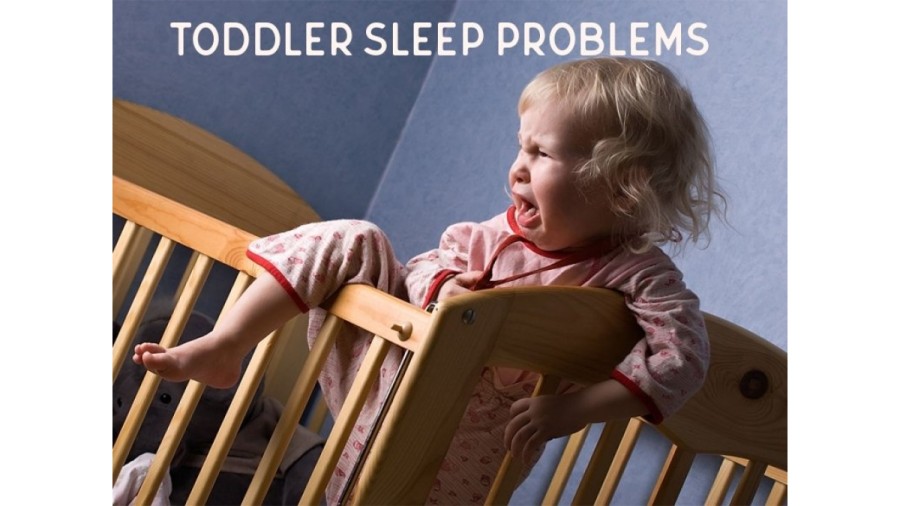Toddler Sleep Problems
Sleep is highly essential for human beings to survive. A good sleep provides a positive energy to accomplish the task for the next day. Sleep is even more important for newborns, toddlers and school children as it plays a vital role in their growth and development. But some toddlers may have sleep issues which need to be corrected at an early stage to avoid physical and mental issues. Continue reading to know the common sleep problems in toddlers and tips to follow to inculcate a sound sleep in
Last Updated: Oct 22, 2020 11:29 GMT

How long do toddlers need to sleep in a day?
In general, toddlers (age 1 to 3 years) require 12 to 14 hours of sleep (one or two naps in the daytime) in a day and preschoolers may require 11 to 13 hours (one daytime nap) of sleep per day.
Signs of sleep disturbance
Common sleep problems in toddlers include bedtime resistance, night awakening(s) and difficulty returning to sleep, nighttime fears and nightmares. The common signs of sleep problems in preschoolers include nighttime fears, nightmares, walking frequently at night, and sleep terrors. Any significant change in the surrounding can also be the cause of sleep disturbance. Sometimes sleep disturbance can be due to illness, allergies, or sleep disorders like sleep apnea.
Signs of sleep disorders in toddlers include the following:
· Your toddler snores loudly.
· Your child sleeps for only 90 minutes, even during night.
· Your child complains of itchy legs at night.
· Your child takes a long time to sleep, asking for a story and to play music.
Sleep disorders
Short term sleep problems can be rectified by following good sleep habits and persistent sleep problems require medical attention.
Sleep apnea
Sleep apnea happens when your child stops breathing for periods of 10 seconds or more while sleeping. Other signs of this condition include loud snoring; sleeping with mouth wide open and your child is falling sleepy during daytime. It is ideal to have a medical consultation as sleep apnea could lead to learning and behavior issues and even heart problems.
Restless Leg Syndrome
In this type of sleep disorder, your child may have a sensation of having a bug crawling on them and they may try to change their sleeping positions so often to get relief. They end up with a poor sleep due to this syndrome. Often vitamin supplements and medications are prescribed to get relief from this disorder.
Night terrors
Night terrors happen during the non REM stages of sleep. They tend to happen approximately 90 minutes after the child falls asleep, particularly when the infant shifts from a deep to light stage of sleep. They are characterized by crying, screaming and fear during sleep. They usually last for a few minutes or for a maximum of 45 minutes. They remain asleep during night terrors and after the incident they will continue deep sleep and will be unable to recall what happened the next day morning. It is difficult to console the child during a night terror.
Nightmares
Nightmares happen during REM stages of sleep and a child usually recalls the incidents the next day.
Insomnia
When a child has insomnia, she may have trouble going to sleep or wakes up too early or stays asleep at night. Short term insomnia may last for a few days or weeks and long term insomnia lasts for a month or longer. Some of the signs of insomnia include lack of energy, trouble in remembering the information, longer daytime naps and taking long times to get to sleep.
Effect of long term sleep problems
Long term sleep problems can cause childhood depression and anxiety, poor memory and more tiredness and being sleepy or overactive. Persistent sleep problems require medical treatment.
Tips to avoid sleep problems
· Stick to a particular time schedule. Don’t keep the daytime naps too short or too long.
· Always keep the sleeping environment calm, cool, dark and enjoyable to sleep.
· Say a strict “No” to any form of screen time in the bedroom. The blue light emitted from the devices disrupts the body’s sleep/wake cycle, making it more difficult to sleep.
· Playing soothing music can be allowed.
· Avoid giving your children caffeinated drinks.
· Encourage your children to have an active lifestyle.
Most sleep problems in children resolve shortly and some require professional treatment.
